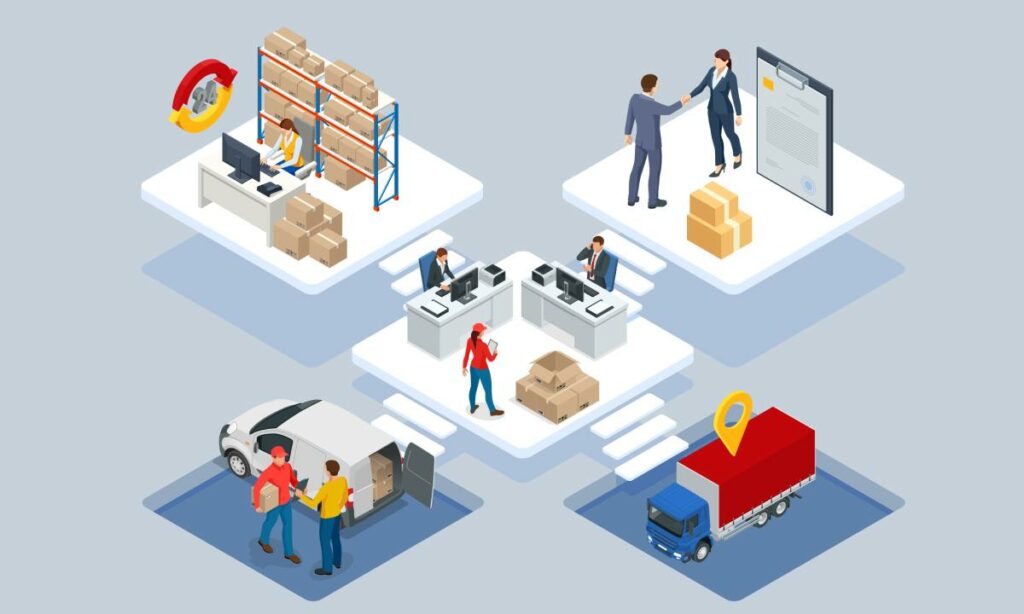The FMCG sector is one of the most critical and significant sectors in the Indian economy. It is also known as the “Consumer Packaged Goods” sector. This sector includes food, beverages, personal care, home care, and tobacco products. This post will discuss how this sector operates and some of its challenges.

FMCG Defined
Fast-moving consumer goods (FMCG) are products that are sold quickly and at a relatively low price. Think of items like food, beverages, toiletries, over-the-counter drugs, and other staples that you typically find in a grocery or convenience store. Because FMCG items have a short shelf life, they need to be replenished frequently, which provides manufacturers with a steady stream of revenue.
Given the nature of FMCG products, companies that produce them must have an efficient supply chain to get the goods to market quickly and at a reasonable cost. This typically involves maintaining extensive inventories and delivering frequent shipments to retailers. In addition, FMCGs are often produced in high volume, which requires economies of scale to be profitable.
Due to the competitive nature of the FMCG market, companies must constantly strive to differentiate their products and stay ahead of trends. This can be a challenge, as consumers are often price sensitive and may switch brands if they feel they can get a better deal elsewhere. Nevertheless, the FMCG industry is essential to the global economy, and those who succeed in this highly competitive environment can reap significant rewards.
Types of FMCG Companies
There are many different types of FMCG companies. The three main types are food and beverage companies, household goods companies, and personal care companies. Each type of company produces different types of products. Food and beverage companies produce items such as cereal, pasta, and soda.
Household goods companies make products such as cleaning supplies, paper towels, and trash bags. Personal care companies create items such as shampoo, soap, and toothpaste. All three types of FMCG companies play an essential role in our lives and the economy. Food and beverage companies provide us with crucial nutrients, household goods companies keep our homes clean and organized, and personal care companies help us to maintain our hygiene. Without these types of companies, our lives would be very different.
How Do FMCG Companies Make Money?
FMCG companies make money by selling their products to retailers. Retailers then sell the products to consumers. The retail price of an FMCG product is typically higher than the wholesale price, so retailers make a profit on each sale. In addition, FMCG companies often run promotions and offer coupons to encourage consumers to buy their products. For example, a food company might present a coupon for $0.50 off a cereal box.
Coupons and promotions are an essential part of the FMCG industry because they help to increase sales and market share. For a company to be successful in the long term, it must continually grow its sales and market share. This can be a challenge, as new companies constantly enter the market and compete for shelf space.
What Are The Challenges That FMCG Companies Face In India And Globally?
The FMCG sector in India is increasing. However, there are still many challenges that FMCG companies face. One of the biggest challenges is distribution. India is a vast country with many remote villages. It can be difficult and expensive to reach all these villages with FMCG products. In addition, infrastructure in India is not always reliable, which can further complicate distribution.
Another challenge that FMCG companies face is counterfeiting. There are many fake FMCG products on the market, and it can be difficult for consumers to tell the difference. This is a problem because it hurts sales of genuine products and damages the reputation of companies.
Finally, companies must contend with strict regulations. The Indian government has established many rules and regulations that FMCG companies must follow. These regulations can be costly and time-consuming to comply with.
FMCG companies’ challenges in India are similar to those they face globally. Distribution is always a challenge, as there are many remote areas worldwide. In addition, counterfeiting is a problem in many countries, and regulations can be strict.
The Future Of The FMCG Sector
The future of the FMCG sector is promising. The industry is snowballing, and there is a lot of potential for further growth. In addition, the Indian government has relaxed some of the rules and regulations that FMCG companies must follow. This has made it easier for companies to do business in India.
The relaxation of regulations is a positive sign for the future of the FMCG sector. It shows that the government supports the industry and wants to see it grow. The end of the FMCG sector is very bright, and companies have many opportunities to succeed.
Final Thoughts
The FMCG sector is a vital part of the economy. It provides us with essential products that we use every day. Without FMCG companies, our lives would be very different. FMCG companies face many challenges, but the sector’s future is promising. The Indian government supports the industry, and companies have many opportunities to succeed. The FMCG sector is an integral part of the economy and will only grow in the future.



